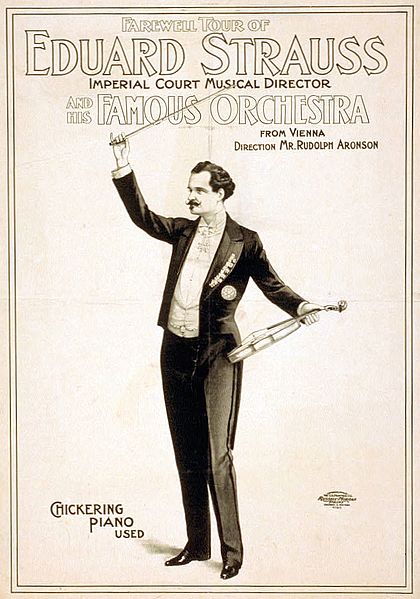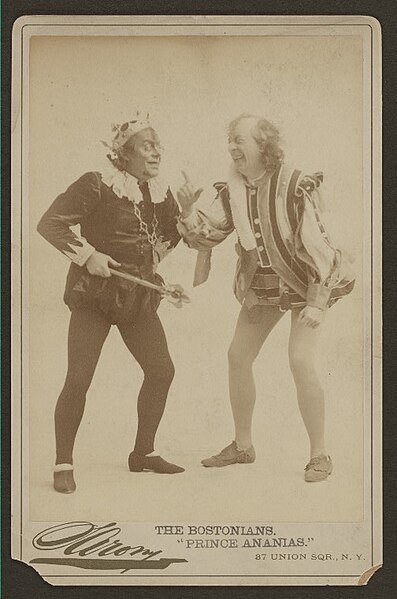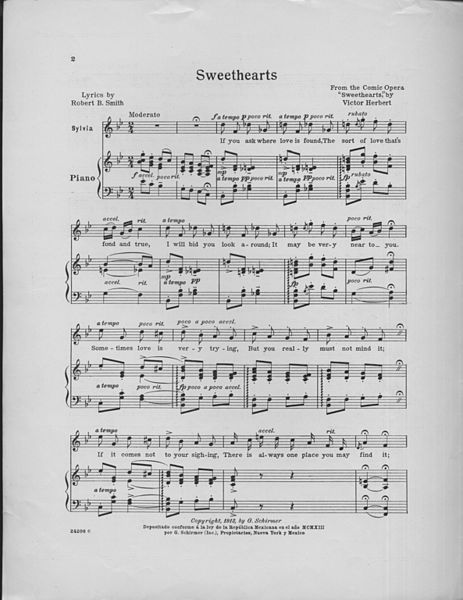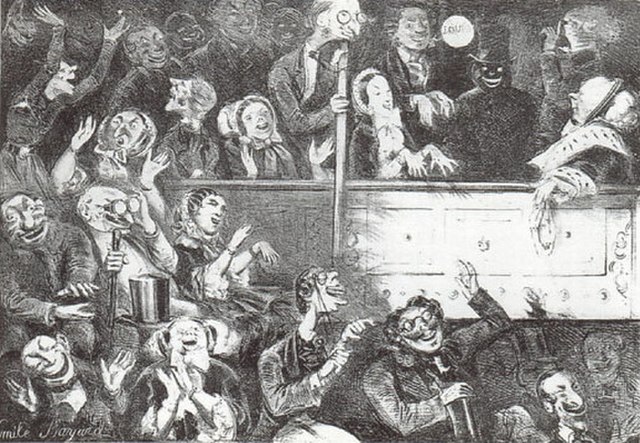Victor August Herbert was an American composer, cellist and conductor of English and Irish ancestry and German training. Although Herbert enjoyed important careers as a cello soloist and conductor, he is best known for composing many successful operettas that premiered on Broadway from the 1890s to World War I. He was also prominent among the Tin Pan Alley composers and was later a founder of the American Society of Composers, Authors, and Publishers (ASCAP). A prolific composer, Herbert produced two operas, a cantata, 43 operettas, incidental music to 10 plays, 31 compositions for orchestra, nine band compositions, nine cello compositions, five violin compositions with piano or orchestra, 22 piano compositions and numerous songs, choral compositions and orchestrations of works by other composers, among other music.
Victor Herbert in 1906
Concert poster for Eduard Strauss's orchestra
A photo from the original 1894 production of Prince Ananias, Herbert's first operetta.
Sheet music for the title song from Sweethearts
Operetta is a form of theatre and a genre of light opera. It includes spoken dialogue, songs, and dances. It is lighter than opera in terms of its music, orchestral size, length of the work, and at face value, subject matter. Apart from its shorter length, the operetta is usually of a light and amusing character. It sometimes also includes satirical commentaries.
The audience at the Théâtre des Bouffes-Parisiens, the birthplace of Jacques Offenbach's operettas. Caricature of 1860 by Émile Bayard.
A Columbia Records advertisement for a recording of Rita Montaner in a production of Eliseo Grenet and Ernesto Lecuona's Niña Rita, o, La Habana en 1830, an operetta from the Spanish genre of zarzuela.
Cover page of Boccaccio, oder Der Prinz von Palermo (Boccaccio, or the Prince of Palermo) by Franz von Suppé in 1879. An example of early Viennese operetta.
Playbill for a revival of Orphée aux enfers








